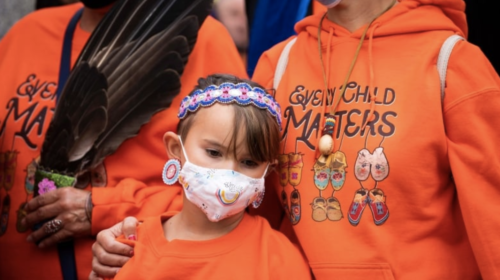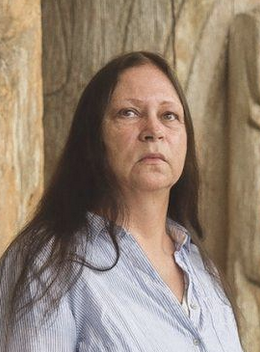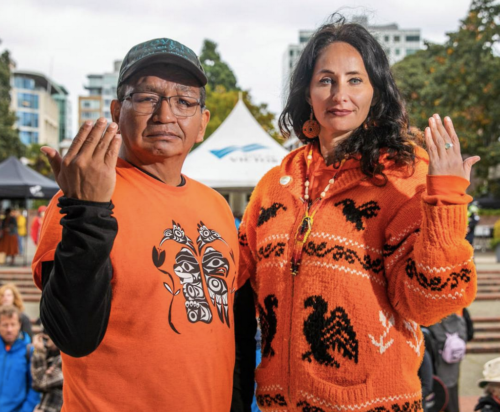
, CBC Radio,
https://www.cbc.ca/radio/unreserved/national-day-for-truth-and-reconciliation-goal-1.6589363
On Sept. 30, Canada will mark its second National Day for Truth and Reconciliation, a time to commemorate children who died while being forced to attend church-run and government-funded residential schools, those who survived and made it home, their families and communities still affected by the lasting trauma.
Despite the goal of the day, there is evidence that it’s not necessarily clear to all Canadians exactly what the day is for or how it can be best used to advance reconciliation.
“The gravity of the day isn’t really understood or acknowledged,” Eva Jewell, a professor at Toronto Metropolitan University and research director at the Yellowhead Institute, told Unreserved’s Rosanna Deerchild.
Parliament approved the federal statutory holiday last year — days after the Tk’emlúps te Secwépemc First Nation confirmed the discovery of 215 potential burial sites on the grounds of a former residential school in Kamloops, B.C. But the Truth and Reconciliation Commission had called for its creation six years earlier as one of its 94 calls to action.
****
More:
Indigenous education courses to help fill knowledge gaps
As an Indigenous person, I think a national day of mourning is exactly what we need
“Let us take the time to sit with the sadness,
and to affirm that every child matters enough
for us to stop and miss them together,
even just for a day.”
Alison Tedford, Kwakiutl First Nation
Indigenous peoples have been here far longer than previously thought
Amy van den Berg: Tell me how you came to archeology.
 Paulette Steeves: In 1980, I was going through a volatile divorce, leaving my home community of Lillooet, B.C. I had a truck, three kids, one terminally ill with a serious environmental illness, 26 cents and a Grade 8 education. I went to speak with Leonard Sampson, a Salish Elder. He told me that he and the Elders believed I was going to help all Indian people. At the time, I could not imagine anything harder. But I never forgot his words. . .
Paulette Steeves: In 1980, I was going through a volatile divorce, leaving my home community of Lillooet, B.C. I had a truck, three kids, one terminally ill with a serious environmental illness, 26 cents and a Grade 8 education. I went to speak with Leonard Sampson, a Salish Elder. He told me that he and the Elders believed I was going to help all Indian people. At the time, I could not imagine anything harder. But I never forgot his words. . .
****

By Ryan Hock, Capital Daily, September 30, 2022
https://www.capitaldaily.ca/news/walking-history-books-founders-of-victoria-orange-shirt-day-reflect-on-reconciliation
In 2013, Phyllis Webstad shared a story about her shiny orange shirt being taken from her at the age of six when she arrived at St. Joseph Mission residential school. That year, the first official Orange Shirt Day event was born, and since then, conversations around Indigenous reconciliation and the negative impact of residential schools have gone global.
Now, Webstad has reclaimed the orange shirt as a symbol of solidarity with residential school survivors, their families, and those who never made it home.
When Kristin Spray and Eddy Charlie met in an Indigenous studies course at Camosun College in 2015, they were also inspired by Webstad’s story.
On Vancouver Island, there were five residential schools that existed up until the 1980s—202 children are known to have died within these schools, though the real number is believed to be higher. Spray and Charlie felt compelled to do something in Victoria and began organizing their own Orange Shirt Day event.
****
Acknowledging the sorrow. . .
forgiving self/others. . .
the Laws of Sacred Purpose & Balance. . .
****

